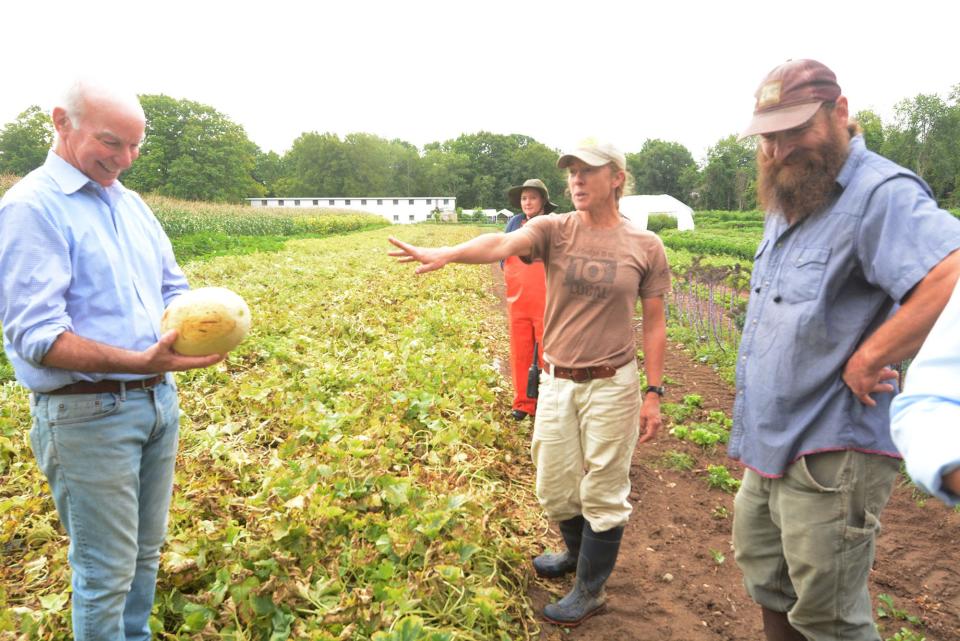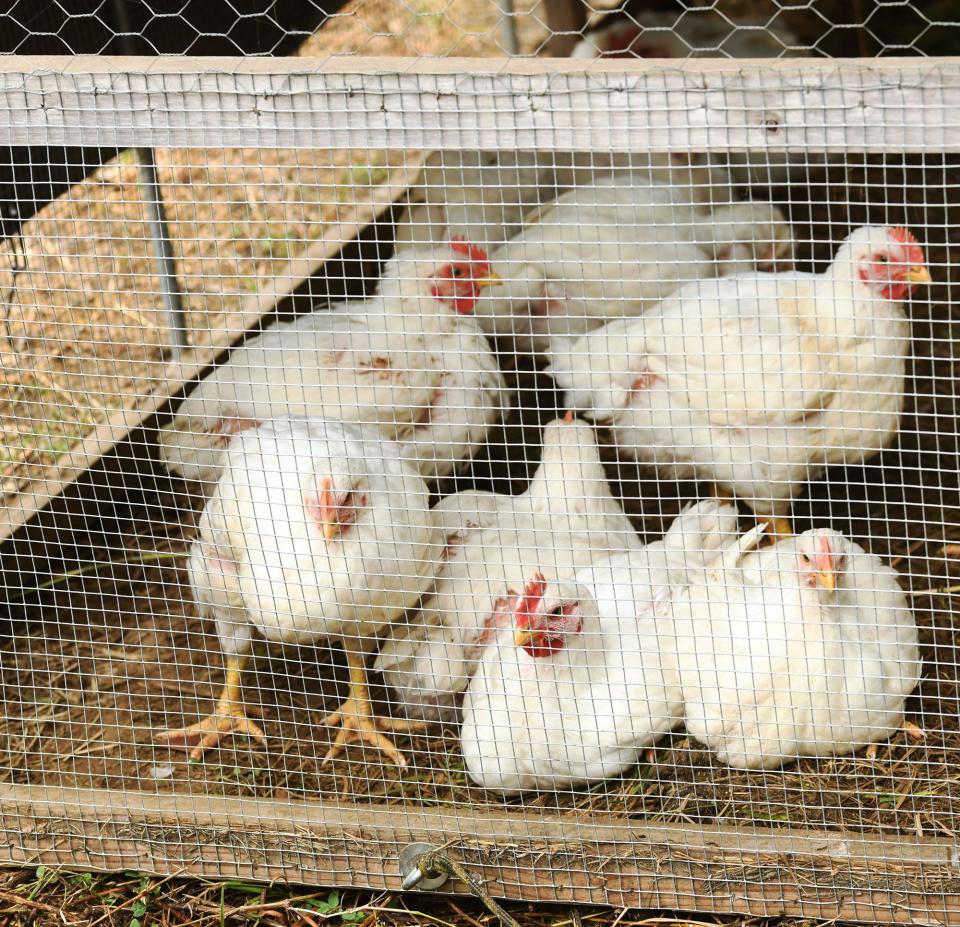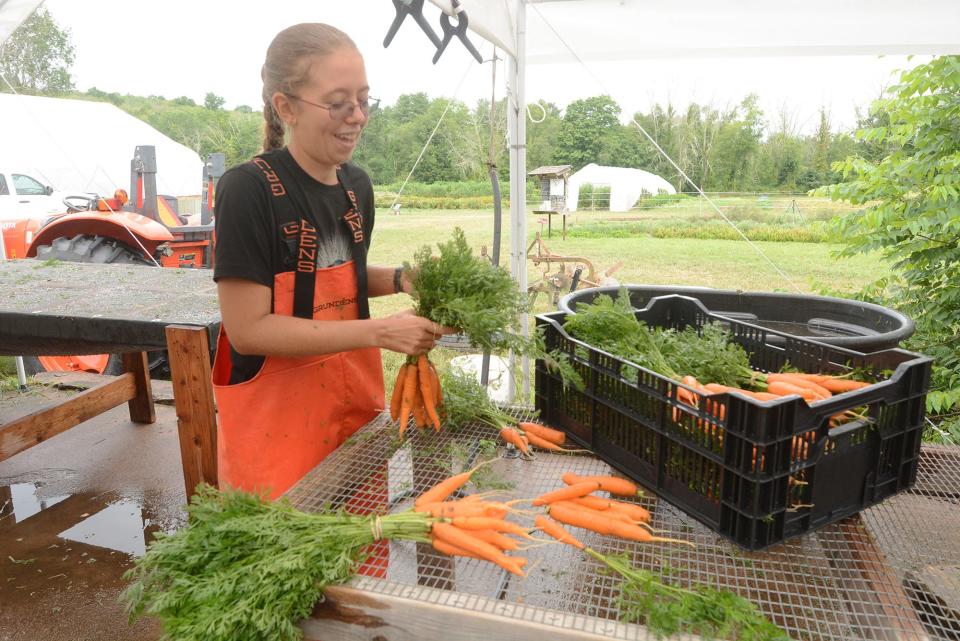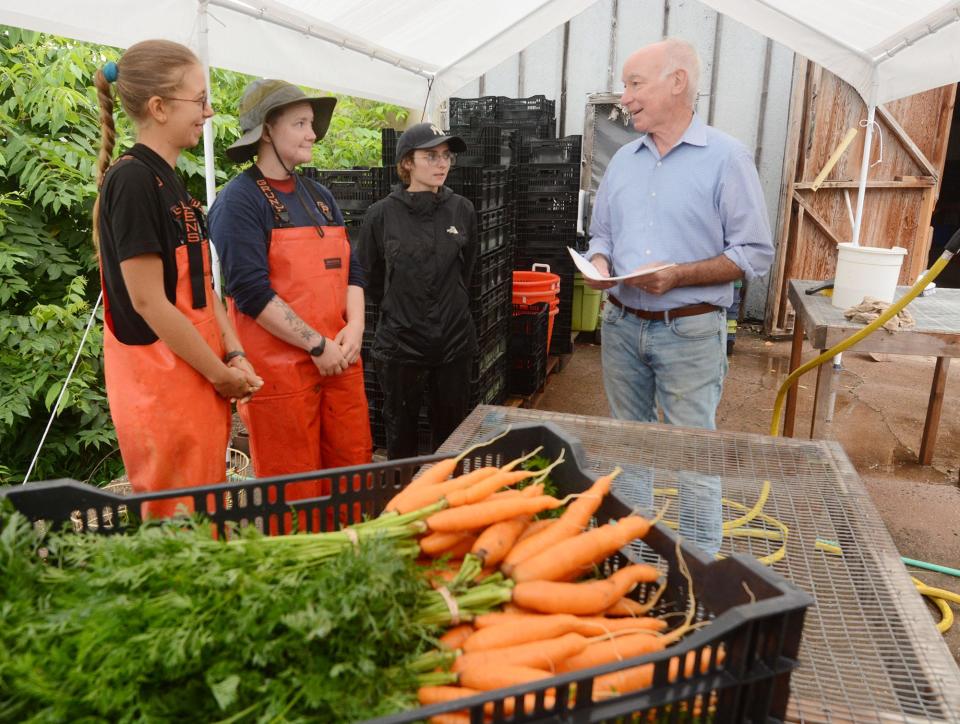As farmers get older, a crucial workforce is vanishing. What's being done?
The average age of an American farmer is 57.5 years old, according to the United States Department of Agriculture’s 2017 Farm Census.
For contrast, the median age of the American workforce is only about 42 years old, according to the Bureau of Labor Statistics. Even the average age of who the USDA considers to be someone just beginning farming is older, at 46.
The impact of an aging agriculture workforce is a national problem that can be seen and felt in Eastern Connecticut. Agriculture is a substantial part of the state's economy, a $4.2 billion industry responsible for 20,000 jobs, said Joan Nichols, executive director of the Connecticut Farm Bureau.

“If we can’t figure out how to secure our local food systems now, we’re never going to figure it out,” she said.
Supply chain issues of the pandemic, coupled with less water, have made the larger farming regions of California and Arizona less able to support the industry, said Susan Mitchell, owner of Cloverleigh Farm in Columbia.
That makes local agriculture is more important than ever, she said.
Woodstock Fair 2022Chainsaw carving, live music and a beef show? A guide to the 2022 Woodstock Fair.
“During the worst of COVID, people started looking more locally,” she said. “The (national-level) food factories, the meat processors, the pork processors closed down due to COVID outbreaks, and people were like ‘oh my God, where am I going to get my food?'”
With smaller farms, the quality of life for the workers and farmers is better, Mitchell said, translating into better quality products.

Difficult to compete for workers when easier jobs are available at similar pay
While farmers try to pay better than minimum wage, they’re still competing for labor with plenty of other, arguably easier, jobs, Nichols said.
“It can be hard work, and they’re willing to pay accordingly, but when minimum wage goes up to $15 and you are competing against the Dunkin Donuts and McDonalds of the world, that’s a real challenge,” Nichols said.
Beyond the literal farming itself, there are employment challenges in adjacent businesses. At Maurice’s Slaughter House in Canterbury, there should be three people processing animals, but only two are working right now, co-owner Linda Mazur said. While the company can only process so much meat, they are booked for meat processing all the way to March, as of August.
Ellis Tech state investigationState police reopened the Ellis Tech gun investigation and made an arrest. What we know.
A third butcher would increase productivity, Mazur said, but the work is taxing is more than one way.
“It’s slaughter,” she said. “You have to have a certain kind of personality to do this.”
In turn, farmers are reliant on guest worker programs for employment, Nichols said.
Young Farmer Success Act would make farming a public service
One thing that may help the situation is the Young Farmer Success Act, introduced in the House of Representatives in July. The act, if passed, would deem farming a public service. In turn, it would offer full student loan forgiveness after 10 years of successful payment for farmers working at a non-hobby farming establishment.

“Anything at all we can incentivize new and beginning farmers to get into the industry is long overdue,” Nichols said.
U.S. Rep. Joe Courtney, who introduced the act, said a similar benefit exists for other professions, including teaching, the military and policing.
Tough to get the resources necessary to start farming
Hurdles for beginning farmers include accessing land, equipment, training and capital. Many of the older farmers have come from farming families, so they still have resources passed on. However, the farmer’s own family may not be interested in continuing the farm, so the land will sell at a high price, even if it’s protected farm land, Nichols said.
Often, this means that new farmers need to have a successful prior career. Mitchell, who supports the act, was a teacher before entering agriculture.
Police training in CTA new Norwich police academy could end daily, hours-long drives for some CT recruits
“I learned this by working on farms and I gained those skills over time,” Mitchell said.
While people don’t have to take formal studies to start in agriculture, loans from college studies in those prior careers may linger.
Becca Toms, communications coordinator for the University of Connecticut College of Agriculture, Health and Natural Resources Extension, said she and a colleague were in social work prior. Toms’ co-worker has since been able to buy a farm, but Toms herself is still working on it.

“(Wanting a career change) doesn’t mean the student loans from the other parts of our lives went away,” she said.
Back at Cloverleigh Farm, Mitchell employs young people who want to spend their careers in farming. One of them is UCONN student Nicole Molloy. She’s majoring in sustainable plant and soil systems, which includes vegetable production. Most of her contemporaries are getting into the cannabis industry.
NFA footballNew era begins for NFA football: How far will the team go this year under a new coach?
Molloy, a Manchester resident, was drawn to the major as farming was different from her urban upbringing, and she had an interest in plants.
“I’m still very young and I have so much to learn,” she said.
After school, Molloy will have a $30,000 debt. Molloy said she’d be more relaxed if the act passes, so she can focus on saving up for her own property.
While not needed, a college education can help a farmer with business skills, said Josh Carnes, owner of Ramble Creek Farm in Columbia.
Route 32 in FranklinRoute 32 in Franklin has become one of the deadliest stretches of road in the area. Why?
Mazur is among those who don’t want more federal government involvement in the industry. While Mazur acknowledges the barriers of entry, she said younger people don’t want to work a hard job that doesn’t pay a lot of money.
“It’s seven days a week, everyday,” Mazur said. “It’s not like ‘I’m not going to go to work this morning.’ When you have animals and a farm, you can’t do that,”
Mitchell also said farming isn’t a way to get rich, or ordinarily a quick path to pay off student loans, versus working in other fields. She said it's important, however and "we need to encourage it as much as we can.”
This article originally appeared on The Bulletin: CT's farming and agriculture industry needs to employ young workers

